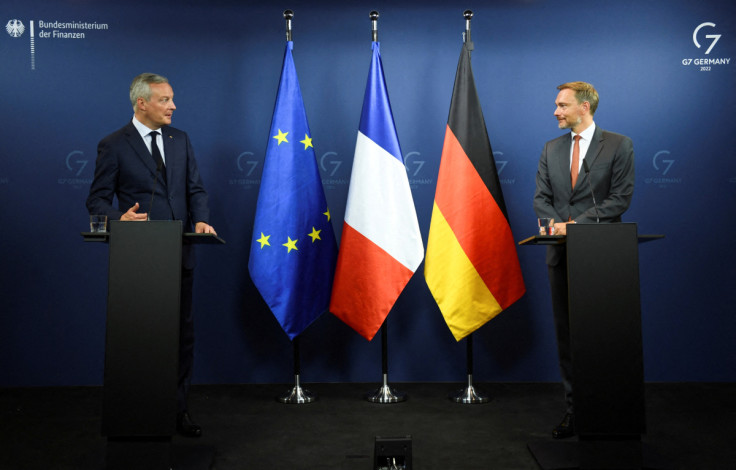France, Germany pledge unity to support economy against inflation

France and Germany pledged on Friday to act together to protect households and companies from soaring energy prices, while also using fiscal policy to fight record high inflation.
French Finance Minister Bruno Le Maire and his German counterpart Christian Lindner made a show of unity at the start of talks for euro zone finance ministers in Prague, telling reporters they would cooperate on policies.
"It is a signal that France and Germany start this meeting together. It is a signal that we are standing shoulder to shoulder, not only here, but policy-wise as well," Lindner said.
The pledge comes a day after the European Central Bank (ECB) raised its key interest rates by an unprecedented 75 basis points and promised further hikes, prioritising the fight against inflation even as the bloc is likely heading towards a winter recession and gas rationing.
"As finance ministers we have to meet our responsibilities as well," Lindner said. "There has been a strong signal from the ECB to fight inflation. And so this is our duty as well - to fight inflation by means of fiscal policy," he said.
"We will protect our households against the consequences of high prices. We have to do the same for private companies, hit by the high gas and electricity prices," Le Maire said.
France, Germany and other countries have announced multibillion-euro packages to help business and consumers cope with soaring inflation. The Bruegel think-tank estimates EU government support has already reached 282 billion euros ($285 billion), with more on the way.
But the support itself can fuel inflation, creating a vicious circle. Euro zone finance ministers will discuss how to coordinate policies to prevent this.
"Those are difficult discussions, but I am sure we will find a common solution we need," Estonian Finance Minister Keit Pentus-Rosimannus said.
In Brussels, EU energy ministers are also meeting on Friday to discuss a long list of proposals from the European Commission to tackle the region's energy crisis, including a price cap on Russian gas, a windfall levy on non-gas power plants, a bloc-wide cut in electricity demand, and emergency credit lines for power firms facing soaring collateral requirements.
($1 = 0.9904 euros)
Copyright Thomson Reuters. All rights reserved.





















